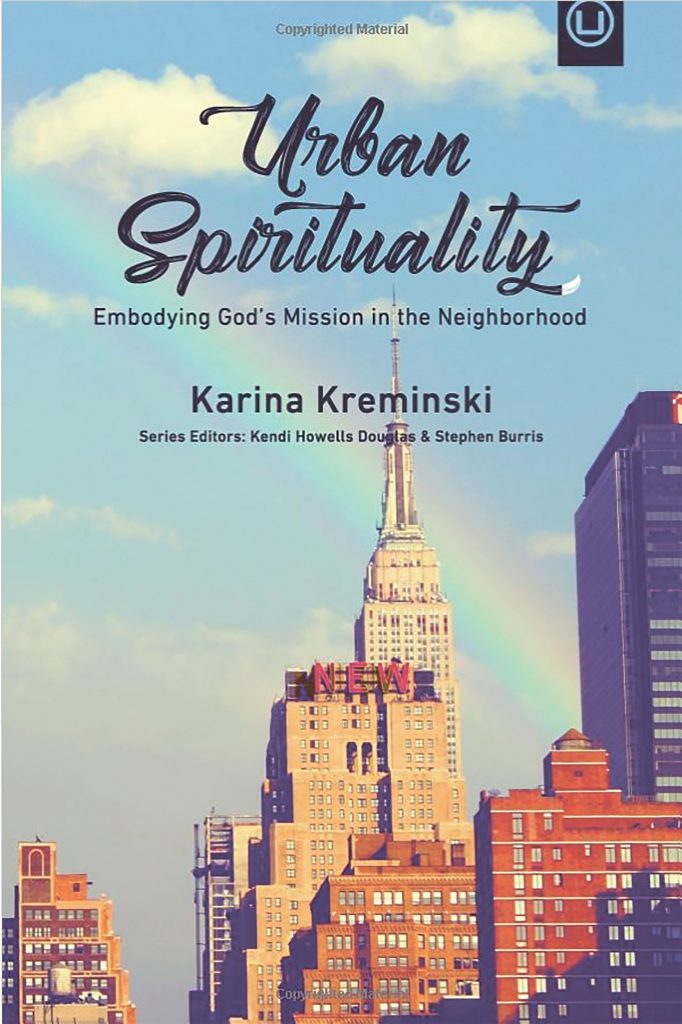I’m often surprised by how complicated Christians can make things when usually the simplest action is what is called for. I was a leader in a church for many years and I found that I often fell into the trap of spending most of my time creating strategies, planning methodologies, taking up new programmes and putting on very time-consuming events when it came to ministry. This is what took up my days.
What I find is that when it comes to thinking about how we can connect with our community where God has placed us, we especially tend to gravitate towards complex actions and plans rather than thinking about the most obvious and simple ways that we can do this.
Some people in my neighbourhood are militantly against the church, but most people I know simply don’t think about the church at all.
The church in the West today is no longer at the centre of power; we have lost our influence and many people are deeply suspicious about the institution of the church. Most people don’t wake up on a Sunday morning and think about the attractive church sign out the front of the local church advertising this month’s sermon series and think, “That looks interesting I might pop in there today.” That doesn’t happen in the secularised inner-city suburb where I live anyway. Some people in my neighbourhood are militantly against the church, but most people I know simply don’t think about the church at all. Church does not figure in their thoughts, aspirations or cultural narratives. They don’t see the purpose and they can’t imagine any personal rationale for the church.
What people do resonate with, however, is seeing individuals who embody authentic, sacrificial love in the context where they live. When we flesh out the good news of the gospel in our neighbourhoods before we proclaim it, this indicates that our actions match up to our words. In a culture that turns its nose up at lack of authenticity in a flash, this is what speaks truth today.
This isn’t to say that programmes and more complex methods of connecting with our community are wrong, only that our priorities need to shift from programmes to personal relationships.
What people do resonate with, however, is seeing individuals who embody authentic, sacrificial love in the context where they live.
Sadly, quite often, when we do engage in personal relationships, we have an agenda. We want to convert people or bring them to church. But true friendships have no agenda and, rather, the basis is an unconditional acceptance of the person. This is not just a nice idea; it is the way that Jesus lived his life. Notice that Jesus made friends with sinners and those who were unacceptable to society. More broadly, God put on flesh in order to save us and show us his love. He did this not with an agenda or with a condition that we would get our act together first; he came to us while we were sinners. God loves us as we are. Of course, when we come to be in God, we learn to reflect him and so we change. As we are drawn to the attractive light of God, we want to let go of anything that stops us from receiving and growing in that light. Regardless, God loves each of us unconditionally; we don’t have to clean ourselves up before he can love us.
I had wanted to start up a church so that it looked like I was actually doing something for God. Instead God asked me to love those in my neighbourhood who would never set foot in a church.
What if we practised true friendship with our neighbours, sacrificial love and cruciformity? Would that not have an impact on our local neighbourhood? Would that not be a witness to the gospel?
This has been especially important to me in the work that I do in my community. I had initially set out to move into the inner city of Sydney to plant a church, but instead God told me to simply love the people in my neighbourhood and serve there. At first I was very disappointed with this revelation. I had wanted to start up a church so that it looked like I was actually doing something for God. Instead God asked me to love those in my neighbourhood who would never set foot in a church. Sometimes it feels like I am doing nothing at all, but I have come to realise that this way of doing “ministry” is what working with God is supposed to look like. Jesus says in Matthew 11:28-30 “Are you tired? Worn out? Burned out on religion? Come to me. Get away with me and you’ll recover your life. I’ll show you how to take a real rest. Walk with me and work with me – watch how I do it. Learn the unforced rhythms of grace. I won’t lay anything heavy or ill-fitting on you. Keep company with me and you’ll learn to live freely and lightly.”
We are supposed to walk with Jesus and work with him and this is meant to be a restful activity. As we abide in him, we work with him to do his mission in our neighbourhoods.
We are supposed to walk with Jesus and work with him and this is meant to be a restful activity. As we abide in him, we work with him to do his mission in our neighbourhoods. This is not complex but rather it entails the simple act of loving those in the places where we live. We must learn the “rhythms of unforced grace” as we love those who are different to us. Even though this sounds very simple, it is, in fact, one of the hardest things to do. Sometimes I wonder if this is why we stick primarily to programmes; they are much easier to control and manipulate. Making true friendships with people who don’t know Jesus is messy, uncomfortable and time consuming.
I’ve found it hard to build friendships in my neighbourhood with people who are not Christian and who have values that are very different to mine. Sometimes I would much prefer to be with people who affirm my values.
No matter how different the values are or how the people in my neighbourhood are living their lives, I can always discern God at work in them.
When I have catch-ups with people who have a different sexual ethic from mine, or value material things in life to the point of idolatry, for instance, I can struggle to know how to relate and connect in a meaningful way. However, I will always be challenged and learn something new each time I meet up with my friends. No matter how different we are, God always affirms their humanity and the image of God in them.
No matter how different the values are or how the people in my neighbourhood are living their lives, I can always discern God at work in them. Usually I will say something like this to them when they are telling me about a particular incident in their lives, “Do you think that’s God’s voice or presence at work there in your life?” They are usually stunned at my suggestion that God might actually condescend to draw near to them and interact with them. Many of the people I mix with have come from difficult backgrounds and could not imagine a God who would come close to them.
It is simple but it is also difficult because the “strategy” we must use is embodying God’s love in our neighbourhoods.
The closer we draw to people who have no conscious experience of the love of God, the more we resemble the ministry and life of Jesus.
Chilean priest and writer Segundo Galilea says, “Mission is to leave one’s own geographic or cultural Christian world in order to enter the world of even the poorest and the most unchristian. The non-believer, the fallen-away Christian, the poor and the oppressed are always the subject of missionary love, and the more mission leaves its own world in search of them, the more it is radicalised and the closer it approaches the model and desire of Christ.”
It is very simple to engage with our community even though many seem to be baffled about how we do this in a post-Christendom culture. It is simple but it is also difficult because the “strategy” we must use is embodying God’s love in our neighbourhoods. This will take time, it will be costly and sacrificial, we will be misunderstood as Jesus was and accused of hanging out with “sinners”; it will also be messy. But it will also be restful, joyful and we will love the world as God loves the world. We will be imitators of Jesus working with him to live out the alternative values of the kingdom of God in the here and now.
Karina Kreminski is a lecturer in Missional Studies at Morling College, Sydney. Her new book is Urban Spirituality and is available at Koorong.com



